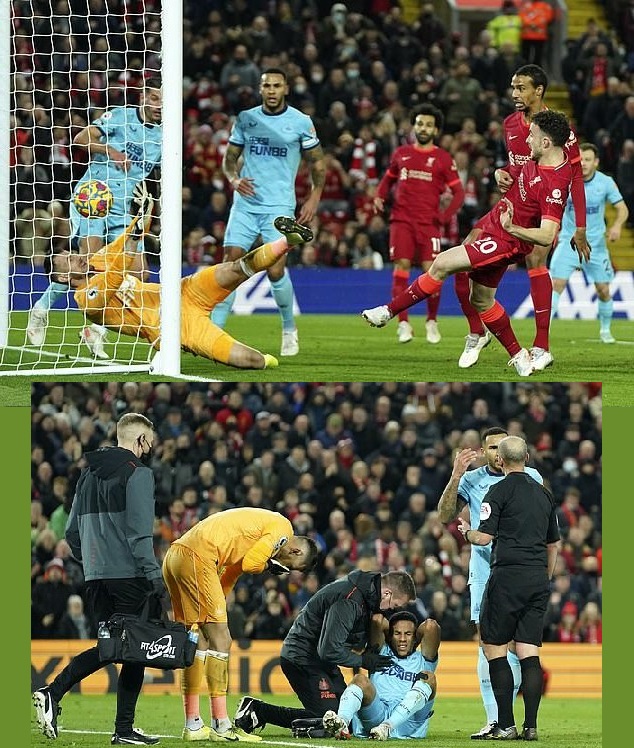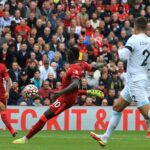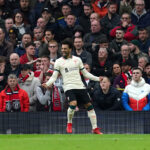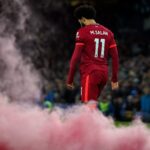Another controversial goal scored while a player is injured
It almost feels like the match at Old Trafford a couple of weeks back. Emile Smith-Rowe scored a legitimate Arsenal goal. But Manchester United were unhappy that it stood due to an injury to their goalkeeper.
Last night, Newcastle United had a shock early lead at Liverpool. As they attempted to clear a Liverpool corner, two Newcastle defenders clashed heads. One of them, Isaac Hayden, fell to the turf holding his head. Referee Mike Dean let play continue for some ten seconds. At the end of that passage, Diogo Jota scored for Liverpool, and the goal stood. Newcastle players went into a rage, pursuing the referee.
The feeling of repetition from the start of the month was tangible. The situation was very similar to the Smith-Rowe/de Gea incident. That decision was correct, but unlucky for Manchester United. This time there was a difference. The injury to de Gea had been a painful foot. Hayden’s injury was to his head.
Head injuries should be treated differently but not that differently
The guideline – not a rule please note – is that referees should stop play if they see a player is seriously injured. As a precaution, all head injuries are assumed to be serious, due to the dangers of concussion. Hayden had been lying on the floor fully ten seconds before Jota scored. Dean had clearly noticed him, but chose to play on.
However, there is nothing in the Laws of the game explicitly saying that he must stop the game immediately in that situation. The current policy towards head injuries in football derives from a consensus statement, reached after an international/inter-sport conference in Zurich in 2012, and the findings of that conference, published in 2013. That statement discusses what treatments and what facilities should be on standby in the event of head injuries. But it does not demand that the referee must implement them the instant a player hits the floor holding his head.
A law that needs tightening
Given the terrible long-term effects of untreated head injuries, the statement probably should demand that the referee stops play at once – although there is always the worry that players may start taking advantage when their team is under pressure. But that would surely be the lesser evil.
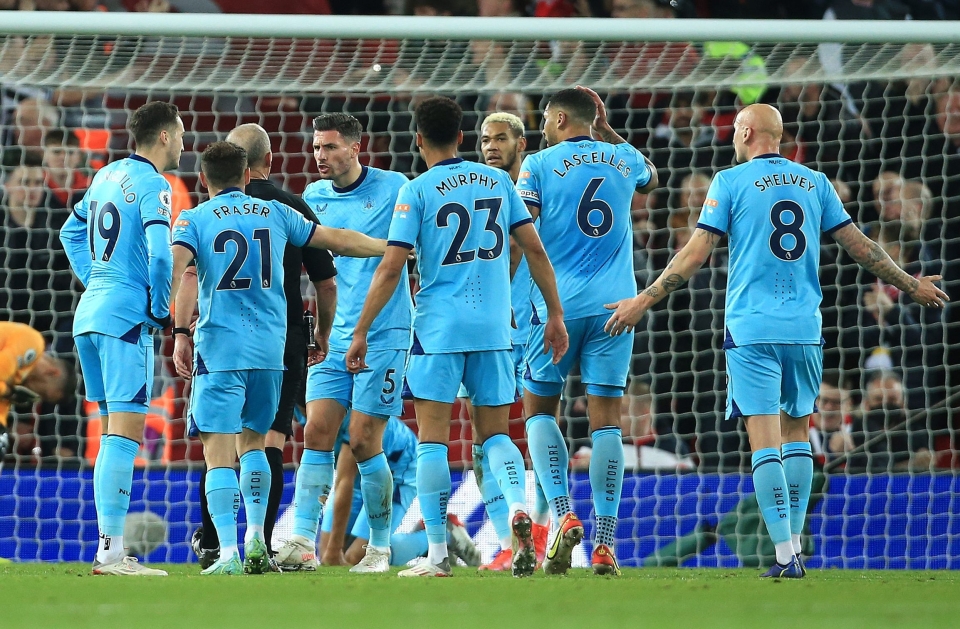
Attitudes to concussion have thankfully transformed completely since the 1980s – an era when, scarily, there was nothing remarkable about players getting concussed, having a head-wash by the physio’s ‘magic sponge,’ and then carrying on playing. Current practice is worlds away from such folly.
But it still is not all it should be. That there are still no strict rules over when referees should ‘sound the alarm’ suggests that football does not grasp the importance of earliest possible intervention.
Wrong but not unfair
So although Mike Dean did not get the rules wrong, and although the clash of heads was between two Newcastle players and certainly not a result of foul play, and although Liverpool were only playing to the whistle, what happened really should not have happened.
This is not to say that Liverpool acted ‘unfairly’, or that Newcastle United were ‘cheated’ in some way. The clash of heads was after all between their own players. It is noticeable that Newcastle manager Eddie Howe, in interviews after the match, seemed more concerned about Liverpool being awarded the goal than in the well-being of his player. That suggests his priority is that Dean blowing the whistle earlier might have shifted the result of the match in his favour.
Such questions are neither here nor there. This is not a fair play issue. It is a health issue. It is a safety issue. For that reason though, Dean should have stopped play.
Subscribe
Click here for a secure way to sign up, you will be supporting independent news. Click the button below.
Your Opinions
Disagree with this article? why not write in and you can have your say? email us
